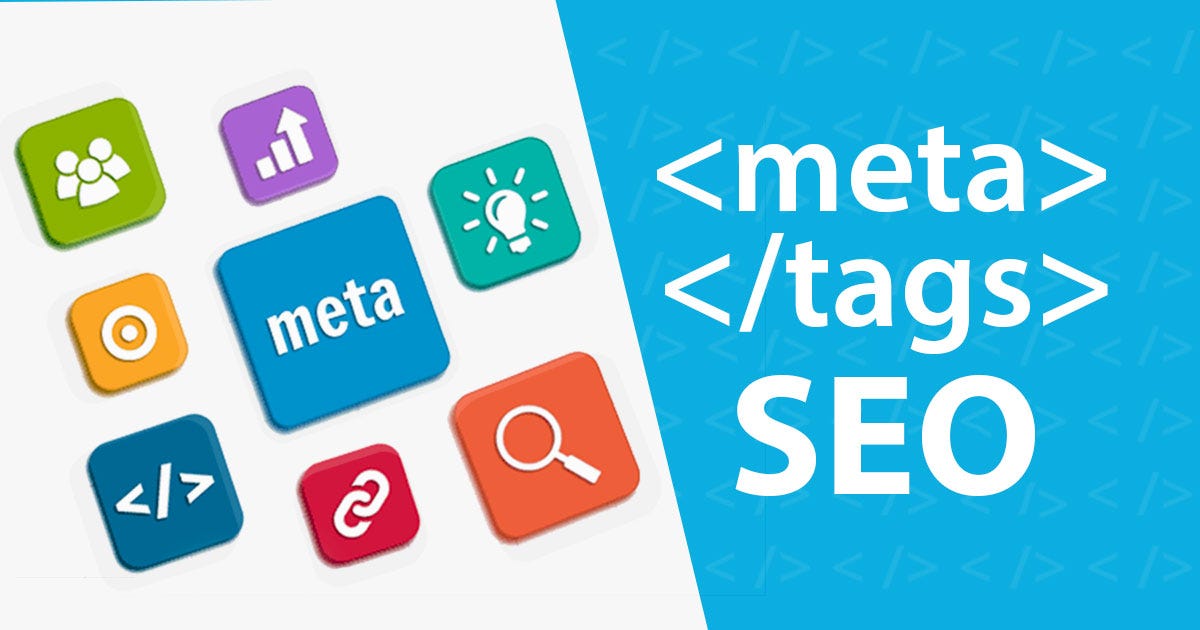Introduction:
In the intricate world of search engine optimization (SEO), meta tags stand as silent but powerful allies in conveying essential information about a webpage to search engines. This article delves into the pivotal role of meta tags and how they influence SEO, ultimately contributing to the coveted ranking on Google’s search results.
- Understanding Meta Tags: Meta tags are snippets of HTML code embedded within the head section of a webpage. They provide information about the page’s content, structure, and metadata. While several types of meta tags exist, the most influential ones for SEO include title tags, meta descriptions, and meta keywords.
- Title Tags – The SEO Headliners: Title tags are arguably the most critical meta tags for SEO. They serve as the headline of a search result, concisely and accurately describing a page’s content. Including relevant keywords in the title tag helps Google understand the page’s subject matter and enhances its chances of ranking for related searches.
- Meta Descriptions – Inviting Clicks: Meta descriptions, although not a direct ranking factor, are crucial in enticing users to click on a search result. Crafting compelling meta descriptions that accurately reflect the page’s content can improve click-through rates. Higher click-through rates may indirectly signal to Google that the page is relevant and valuable to users.
- Meta Keywords – A Relic of the Past: Historically, meta keywords were used to indicate the primary topics of a webpage. However, due to widespread abuse and manipulation, search engines, including Google, no longer consider meta keywords a ranking factor. In contemporary SEO, their impact is minimal, and search engines rely more on content and other factors.
- Optimizing Title Tags for Impact: To leverage the full potential of title tags, optimize them by placing relevant keywords near the beginning and ensuring a length that is both informative and display-friendly in search results. Crafting unique, compelling titles for each page contributes to a more positive user experience and enhances SEO.
- Crafting Compelling Meta Descriptions: Meta descriptions should be succinct, engaging, and accurately represent the page’s content. While they don’t directly influence rankings, well-crafted meta descriptions can improve click-through rates, indirectly contributing to a page’s perceived relevance and authority.
- Best Practices for Meta Keywords: Given the diminished significance of meta keywords, focus on more impactful SEO strategies such as thorough keyword research, high-quality content creation, and building authoritative backlinks. These practices are more aligned with modern search engine algorithms and contribute to improved rankings.
- Dynamic Meta Tags for CMS Platforms: Content Management Systems (CMS) often allow for dynamic meta tags that automatically generate information based on page content. Ensure your CMS is configured to create relevant and accurate title tags and meta descriptions for each page, saving time and maintaining consistency.
- Regular Review and Optimization: SEO is dynamic, and user search behavior evolves. Regularly review and optimize your meta tags to align with changing trends, industry updates, and shifts in user intent. This ongoing effort ensures your pages remain relevant and competitive in Google’s ever-evolving ranking algorithms.
Conclusion:
Meta tags significantly influence SEO and Google ranking with their concise but impactful role. In particular, title tags and meta descriptions serve as essential elements for conveying information to search engines and users alike. By understanding their importance, optimizing them strategically, and adapting to evolving SEO practices, you can harness the power of meta tags to enhance your website’s visibility and ranking in Google’s search results.





hi